People with oily and acne-prone skin use a lot of products to keep breakouts at bay. Unfortunately, going overboard with product use can sometimes lead to break out. The skin-care ingredients that might cause acne must be avoided. Read on about the common skin-care ingredients that might be breaking you out and avoid skin-care ingredients that cause breakout
Salicylic Acid
Acne is caused by a number of factors, such as not taking your makeup off, not changing your pillowcase regularly, an unhealthy diet of fatty, fried, sugary foods, or the wrong skincare regimen. Products with salicylic acid are prescribed to people with acne. Sometimes, salicylic acid can be too harsh for your skin. It can make your skin too dry, which can make skin produce more oil, leading to breakouts as a result. Products wilt salicylic acid can sometimes cause redness and inflammation too. If you do not want to give up on salicylic acid altogether, look for targeted treatments. Avoid face washes and cleansers with salicylic acid. A lose dose of salicylic acid found in targeted treatments probably won’t hurt. Only use it on your spots.
Also Read: Pore Minimizing Products For A Flawless Skin
Exfoliating Beads
We are all guilty of enjoying the exfoliating beads found in exfoliators. Exfoliation is very important for sloughing off dead skin cells. Exfoliating beads can be very harsh, which can cause irritation and even breakouts. Exfoliating beads are not good for acne as they inflame the skin, which makes the condition worse. Look for chemical exfoliators instead of physical ones. You can also whip up your own scrubs at home with simple ingredients like almond flakes and brown sugar. Simply add some ground flakes to milk or yogurt. Use this paste to gently exfoliate your face. You can repeat this twice or thrice a week. Similarly, simply make a paste of some brown sugar, honey, and lemon. Use this scrub to gently exfoliate your face. Exfoliation can reveal new skin if done regulalrly. Use a gentle hand when exfoliating. Do not exfoliate your face like you are washing dishes! Be very gentle, as skin is very delicate.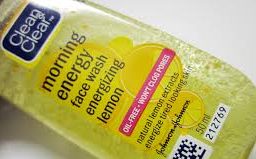
Fragrance
It is not a good idea to use products with artificial fragrance on your face. While you may enjoy washing your face with fragrant products, it may actually be harming your skin. A fragrance is found in many commercial face washes and scrubs which are targeted at the acne-prone skin. These products can lead to inflamed pimples or blotchy complexion. If you have dry skin, replace fragranced products with unscented ones to ease the discomfort of scratching all day. Fragrance serves no purpose in your skin-care routine. All it does is trick our mind into thinking that they product you are using is good because of that fragrance. However, natural fragrances like those of rose or natural food extracts can be good and relaxing.
Also Read: Treat Your Skin With These Vitamin C Products
Retinol
Retinol is a sought after ingredient because of its anti-aging properties. Retinol is usually found in serums and wrinkle fighting creams. Retinol is great for treating fine lines and uneven skin tone because it promotes cell turnover and exfoliates away scars which are left behind by acne. If you are planning to add it to your regimen, consult your dermatologist so they may prescribe a dose that will suit your skin type. Do a patch test first to see how you react to the product.
Alcohol
It is always a good idea to look for products that have natural ingredients in them. Avoid products like toners and cleansers that contain alcohol. Alcohol dries out the skin, which makes the sebaceous glands secrete even more oil to hydrate the skin. The excess oil gets trapped in the glands, and bacteria clogs them, leading to acne. Use a gentle cleanser with micellar water at night.
Also Read: Add Peel-Off Masks To Your Beauty Routine
Benzoyl Peroxide
Many commercial face washes and spot treatments use Benzoyl Peroxide as the main acne-fighting ingredient that will get rid of acne. This ingredient may work to clear a pimple or two, but it is not a long-term solution in any way for those struggling with hormonal acne. For a smooth, clear skin tone without the drying side effects of benzyol peroxide, use Skin Accumax, which is a supplement for acne-prone adult skin (including people with hormonal and cystic acne). It has vitamins and plants nutrients in a blend that get rid of acne without the harsh, or irritating side effects. 
Coconut Oil
Most people with oily skin did not dare use oil on their face. Then, news got around that oil is actually good for skin. Not every oil works the same for skin. Some, like coconut oil, clog pores and are actually bad for acne-prone skin. Coconut oil has a high comedogenic, which means it can block your pores. However, you can use this oil to moisturize the rest of your body.
Also Read: Facial Oils You Need In Your Life!
Silicone
Do you get breakouts after using a heavy foundation? Silicone might be the culprit here. Products containing silicone might make your skin feel soft, but they layer onto your face, which causes clogged pores which lead to breakouts. Try to buy silicone free foundations. In fact, it is best to avoid foundations during days when you are having a breakout.
Also Read: DIY Remedies For A Flawless Skin And Gorgeous Hair
Talc
The frequent use of talc in widely used cosmetic and household items (like baby powders and shower products) raised eyebrows when studies connected the ingredient to the carcinogen asbestos. Although most common cosmetic products that have talc have been deemed as safe, people with acne-prone skin should avoid using products with talc as they can dry out skin and irritate it, leading to inflammation. Next time you go to buy makeup products like eyeshadows and face powders, make sure talc is not an ingredient!
Parabens
Paraben is a family of chemical compounds used as preservatives. Other common names for paraben are propylparaben, methylparaben, butylparaben, and ethylparaben. Parabens have been approved by the FDA to be used in products like shampoos and hair dyes. Although paraben might not be a direct threat for your acne, there’s a chance that they can copy estrogen in the body. This can influence your hormones and cause acne. Next time you go shopping, avoid picking up products containing paraben.
Cocoa Butter
Cocoa butter is very greasy and it can clog your pores. Clogged pores can lead to acne and breakouts. Avoid using cocoa butter on your face. Also, avoid products containing cocoa butter. You may use cocoa butter as a hand or feet moisturizer though. 
SPF
Some people are also allergic to spf, which is found in sunscreens and some makeup products. Try avoiding the use of products that have spf for one week and see how your skin reacts. However, spf is important for sun protection. If spf, breaks you out, look for other alternatives for protection from the sun. Also, make sure you are not confusing the effects of a sunscreen and spf. If your sunscreen is oily, and clogs pores, the heaviness of it might be breaking you out, not spf. Choose a sunscreen which is suitable for oily skin.
Be careful with the ingredient you use on your face. Sometimes, less is more. Avoid using skin-care ingredients that cause a breakout. Sometimes when we experience a breakout, we tend to go overboard with products in a bid to dry out our skin to get rid of acne. This is not a good idea. Over drying your skin will only make your skin produce more oil. As we all know, bacteria loves oil. Use minimal beauty products targeted for your skin type. Consult your dermatologist so they may prescribe products suitable for you. Also be conscious of your diet. Do not eat junk or processed food. Try to eat a clean diet. яндекс
Also Read: Bedside Beauty Essentials
Which skin-care ingredient irritates your skin the most? Which skin-care ingredient calms your skin the most? Share your acne-fighting tips with us in the comments below!
















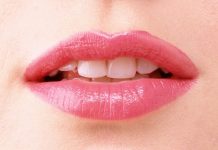
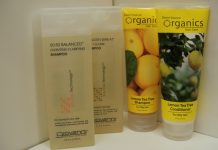
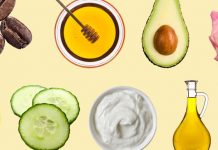
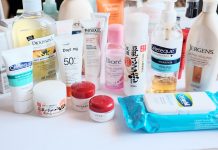




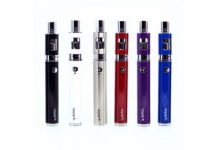

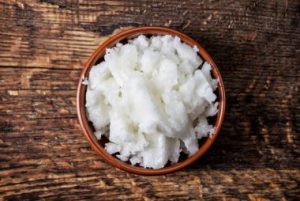






[…] Also Read: These Skin-Care Ingredients Might Be Breaking You Out […]